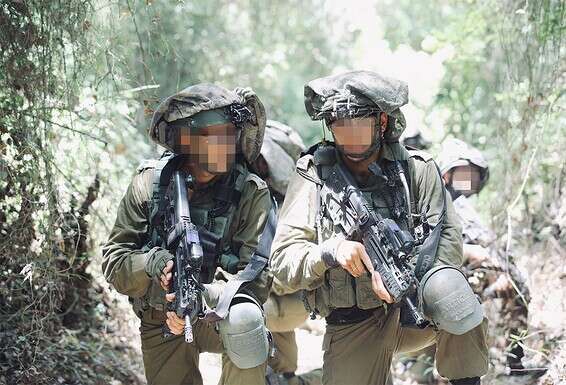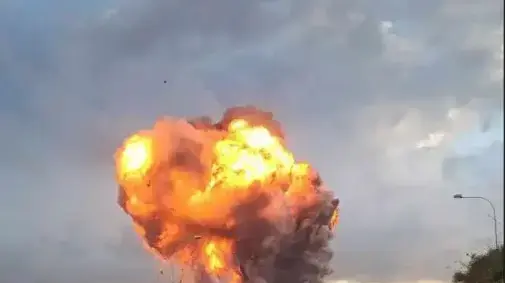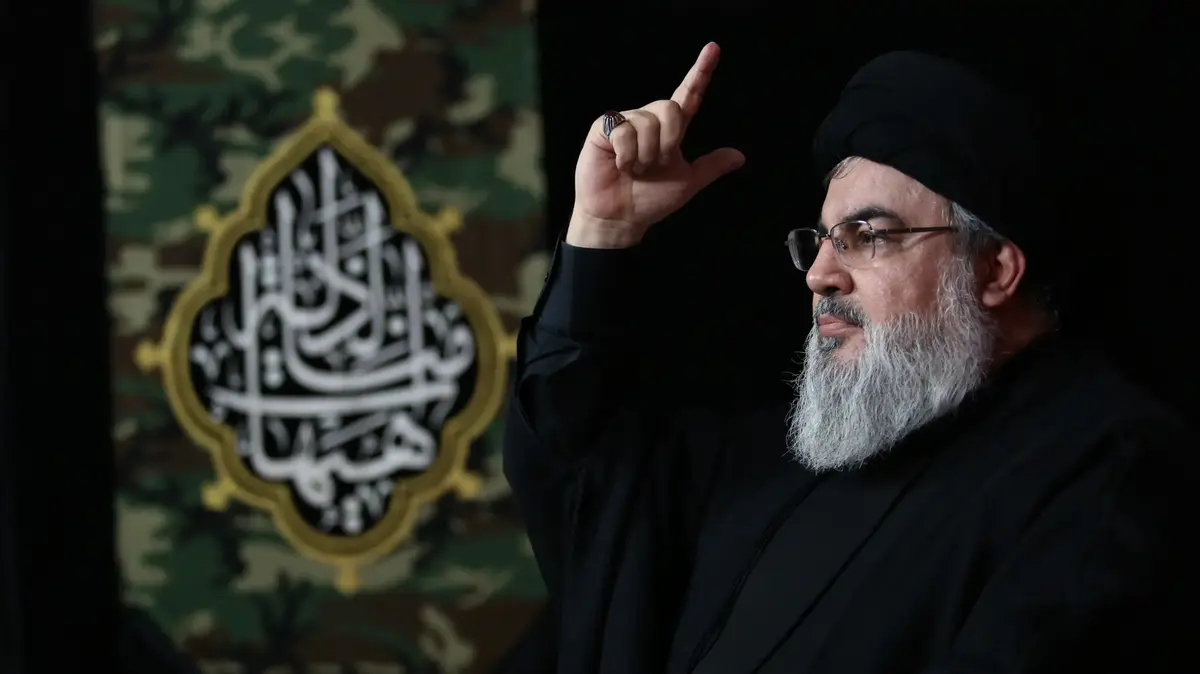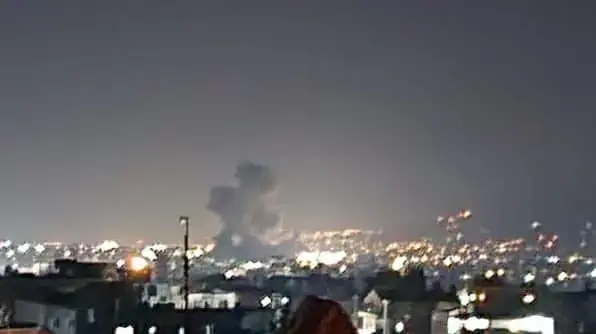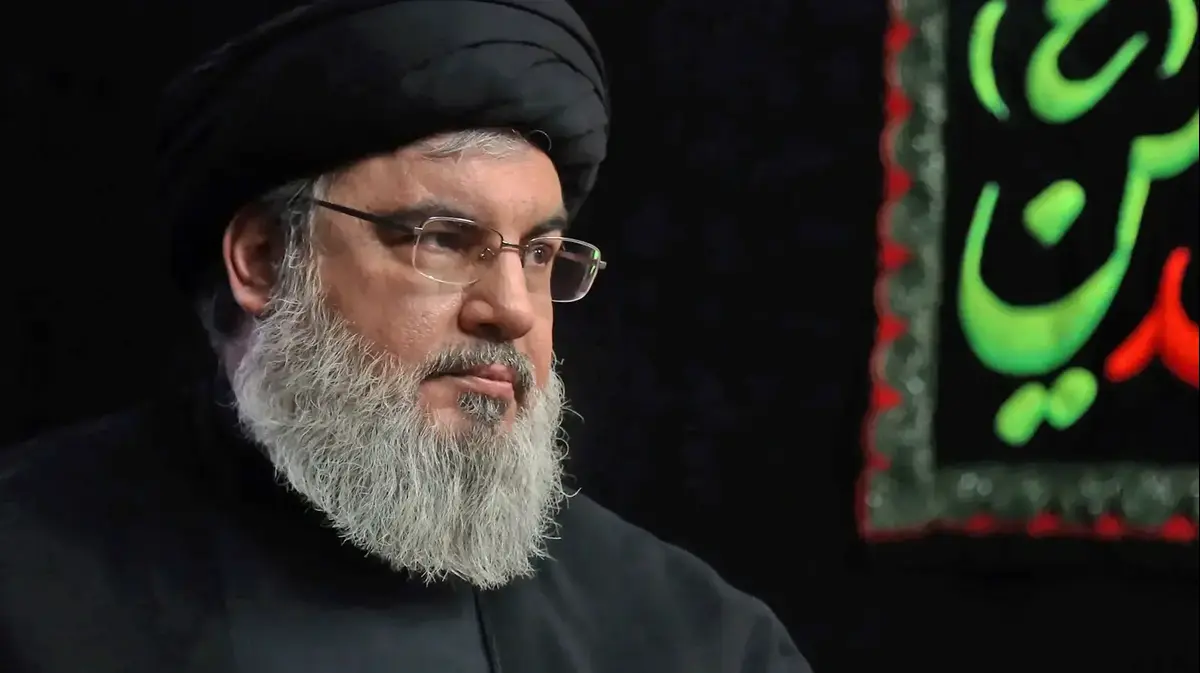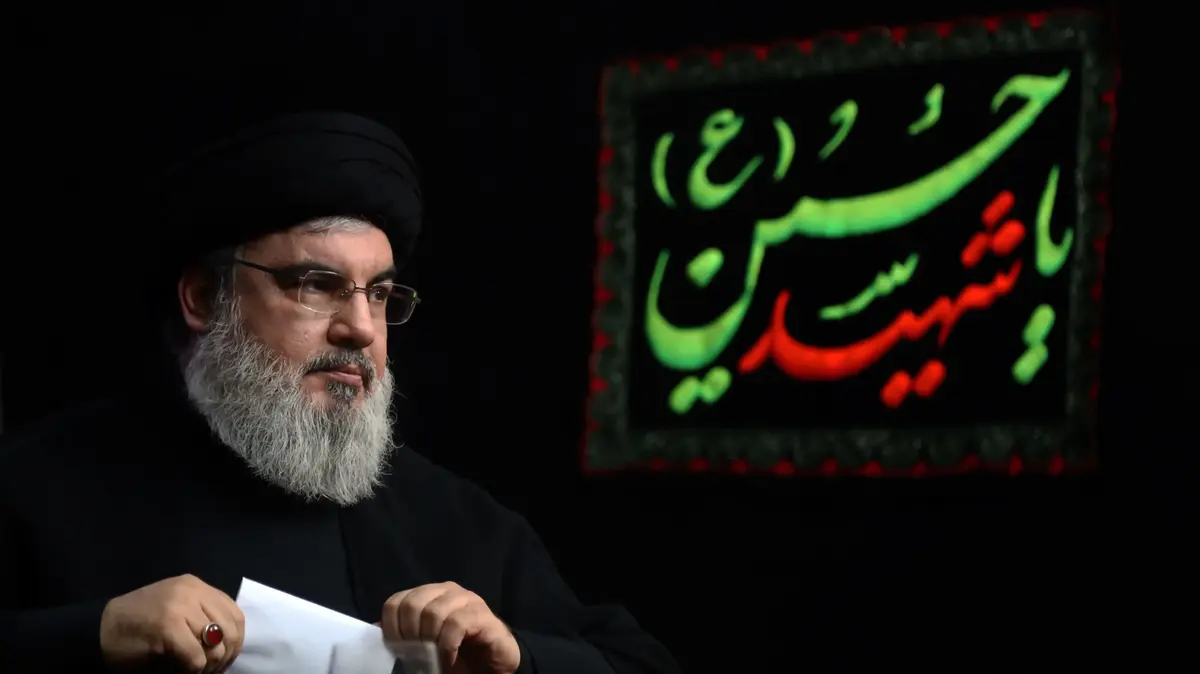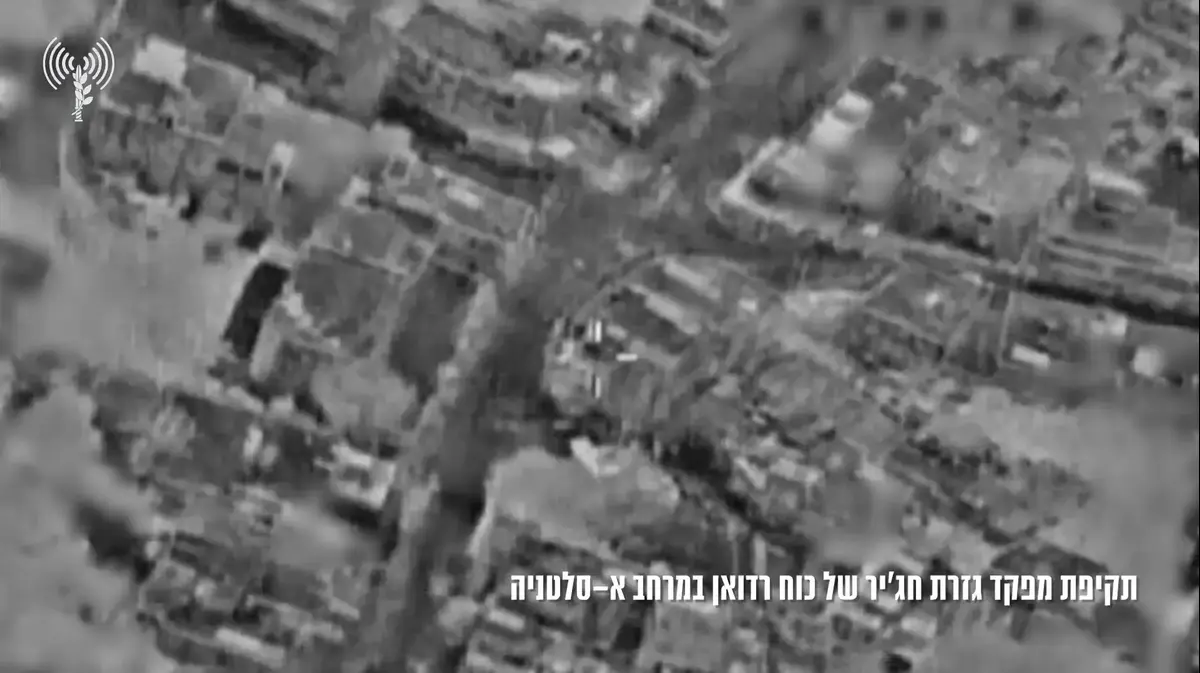A day with the forces in the north shows that even if the decision to let the terrorists return safely from the incident on Mount Dov was made with a clear opinion, it arouses quite a bit of resentment • The IDF wants to lower the flames against Hezbollah, but believes
Preparing for battle days and escalation.
IDF forces on standby in the north
Photography:
Eyal Margolin - Ginny
Several hours passed from the moment Observer S. identified a suspicious movement on Monday morning in the complicated lane leading to the Gladiola outpost on Mount Dov, until a fire was opened that tried the terrorists back into Lebanese territory.
It is an eternity in terms of time of encounter.
Enough time to prepare, discuss, decide.
There was no surprise in this incident on the Israeli side.
All actions were done with intent, and with full discretion.
The fact that the terrorists returned home safely arouses quite a bit of resentment within the IDF and the public, but it was done with a clear mind and out of a sober assessment: there were other options on the table, which were rejected to avoid escalation.
The identification of the squad was not straightforward.
You have to be a professional to know how to notice details.
The area in this sector is dense, rocky, rich in vegetation.
The terrorists moved in leaps and bounds.
Hide in a bush, then move quickly to the next bush.
At one point, S. absorbed movement.
She called her commander, who was sitting next to her at an IDF base on a high ridge. The commander examined the picture, confirmed the distinction and reported further.
Within minutes, the report was forwarded to the Commander-in-Chief of the Northern Command, Amir Baram.
Exactly one week, from Monday to Monday, passed between the attack attributed to the Air Force at Damascus International Airport - in which a junior Hezbollah operative was killed that led to Hassan Nasrallah's decision to respond from Lebanese territory - until the squad was located on the way to Gladiola.
This week the sector was on high alert;
The general was also left to sleep in his office.
Baram went down to the pit of command.
From there, he commanded the event until it ended in the afternoon.
Sometime in the morning, he was joined by the chief of staff, Aviv Kochavi, who had arrived from Tel Aviv. On that day, the chief of staff was to accompany the prime minister's visit to the north.
The report of the operational incident was forwarded to Netanyahu's office, along with a request to postpone the visit.
Har Nahal is now home to the Nahal 931st Battalion. Three weeks ago, it replaced the 13th Golani Battalion, which went down to training and jumped again this week to reinforce. The picture from the observations was directed at him, and he was asked to continue with the routine: to play music, to move tanks, to act as usual.
Meanwhile, surveillance has increased.
Unmanned aircraft joined the observations.
The photos left no room for doubt: these are terrorists, with weapons and other equipment, who made their way towards the post, apparently with the aim of settling in the area that controls it - and acting.
Anyone familiar with this area on Mount Dov understands what an effort it takes for them to climb the mountain secretly, at noon, at the height of the July heat.
In the equipment observed no water tanks were seen: they seemed to have drunk everything along the way.
Vigilance in the cistern
The hours between identification and encounter were used for consultations.
The first important decision made was to allow the cell to infiltrate Israeli territory.
There is no physical border in this area on Mount Dov, but the "blue line" - the international border line - is well known.
The decision to let the squad cross it was intended to avoid firing into Lebanese territory, which could have been perceived as an Israeli war operation, which would lead to a response, but even more so - not to leave doubts.
Document everything so that it is clear who is the attacker and who is the defender, to gain legitimacy in the event of an escalation.
Waiting for the enemy. Golani fighters // Photo: Oren Cohen
The second decision was not to wait until the terrorists carried out an attack.
Their outline was not clear at this stage, and the IDF preferred not to take a risk. It was decided that as soon as the squad crossed the border a few tens of meters into Israeli territory, it would be disrupted. Everyone who took part in the event was briefed well in advance, including at the shooting angles, leaving no opening for coincidences.
The third decision was to prepare the whole decree.
Hezbollah is the master of surprises.
The fear was that the action on Mount Dov was a diversion to another event, in a different sector.
Therefore, it was decided that as soon as the incident became visible, the entire northern border would be put on the defensive: roads would be closed, residents would be brought into homes and soldiers into protected areas.
The fourth, and most dramatic, decision was to allow the squad to return home safely.
Everyone who was present in those hours in the command pit in Safed describes quite a bit of nervousness around this decision.
"I am a fighter. I was trained to kill terrorists. If I say I did not tickle my fingers, I will lie," said one of them.
There were three options on the table: kill the terrorists, drive them away, or take them captive.
The third option was first removed from the table.
Israel wants to lower the flames against Hezbollah, not to light a huge bonfire.
Had the cell been captured - alive, but also dead - Hezbollah would have acted accordingly.
True to the eye-under-eye policy that dragged him this week into an unending adventure on the Lebanese border, he would kidnap Israelis.
One does not have to go back to 2006 to understand what such a chain of actions means: war.
The decision not to eliminate the squad was also made for the same reason.
Israel has three strategic goals in the northern sector: to prevent an Iranian establishment in Syria, to prevent the transfer of advanced weapons to Hezbollah and Shiite militias, and to halt the Hezbollah missile accuracy project.
To risk degenerating into an escalation whose end is unclear due to a tactical event on the fence contradicts these strategic objectives.
As stated, this is a controversial decision.
Not just because of that healthy soldier instinct to get up and kill whoever came to kill you.
Behind the scenes, a debate erupted this week as to whether Israeli deterrence was harmed in the incident: Many believe (including senior officials) that the lesson that Hezbollah understood is bad.
Instead of knowing that he would pay a heavy price for any intrusion into Israeli territory, he learned that Israel is the one that is afraid to pay the price.
Those who attended the consultations say that this dilemma was on the table.
That everything is spoken and weighed, before it is decided.
Kochavi spoke from the command with Defense Minister Ganz.
Netanyahu was also in the picture.
In the end, Israel decided to try and avoid war.
The thought was that it would be possible to create a situation in which all parties would live in peace with the event: Israel would end it without paying a price, and Hezbollah would claim to have attacked and repaid the bill.
"Nasrallah plays with fire"
At around three in the afternoon, the terrorists crossed the blue line.
A few minutes later, by order, the fire was opened.
At no point was she aiming at them, but they had no ability to know it.
They began fleeing down the mountain, into Lebanese territory.
This part of the observation films is even more embarrassing for them than the long follow-up on the way back: it was not published so as not to humiliate Hezbollah.
As stated, the goal is sedation, not escalation.
Iron protection is required. Lebanese border // Photo: Eyal Margolin - Ginny
The terrorists had a lot of equipment.
Includes combat equipment that indicates the nature of the planned attack.
At the end of the event, the IDF invited UNIFIL personnel to the scene to document the findings on the ground.
It is doubtful whether this report has any value: UNIFIL is the world champion in reports;
It has no real impact on what is happening in the border area.
It took another 50 minutes for the event to officially end.
During this time the roads throughout the border were closed as planned, the civilians and soldiers were put on the defensive, and on Mount Dov heavy masking of artillery and smoke fell to disrupt further attacks or rescue operations.
In retrospect, it turned out that all this was for nothing: Hezbollah did not carry out any diversion, nor any rescue operation of the entangled squad.
The IDF has been breaking its head since Monday, what does this mean? The incident as a whole raises quite a few questions: What is the logic of the terrorists climbing the mountain with heavy equipment on their backs, in full daylight, under peak alert, and without any cover? Many) in a special Hezbollah operation carried out in a hurry and had only a few secret partners to avoid exposure, or is it (as others believe) a proxy - Palestinians from the refugee camps or civilians - sent to act to allow Hezbollah room to maneuver within the event?
One thing is undisputed: it was a sloppy attack.
Hezbollah knows how to act much better.
It may have been the haste to take revenge even before the Feast of Sacrifice, and perhaps internal pressure in Lebanon is influencing Nasrallah's discretion.
The fact that he also refused to take the ladder he could get off the tree;
Instead of enjoying "revenge", he was quick to claim that he did not act at all.
This is a ridiculous claim considering that the whole incident is filmed - from the long surveillance hours to the escape and the equipment observed.
This documentation has not been published so far to allow Hezbollah to live with the incident in peace: instead, the organization has chosen to commit to another act of revenge.
"Nasrallah is playing with fire," a senior IDF official said this week.
There is a logic to this claim, but it must be examined from Nasrallah's point of view: he seeks to deter Israel from harming its people not only in Lebanon, but in all sectors.
And if his lesson from this week's events is that Israel is wary of war, he may expand that equation even further.
At the next stage, he may deliberately place Lebanese, on the standard of lifeguards, at any Iranian site in Syria, and next to any arms shipment or weapons depot. In such a situation, the dilemma in Israel will be: not to attack and retreat from the strategic red lines in the northern sector In escalation (and perhaps in war) in Lebanon.
Nasrallah and Hezbollah are in their heyday.
The economic situation of the organization is bad because of drastic cuts with the help of Iran, and the economic situation in Lebanon is even worse.
The country is on the verge of insolvency.
Foreign governments offer aid in deep reforms, which Hezbollah thwarts.
With 40 percent unemployment and the backdrop of the corona plague, the Lebanese public is desperate, scared and angry.
Hezbollah, which comes from the people and is attentive to it, hears the voices and knows that the rage may also be directed in its direction.
Some commentators believe that it is precisely this distress that may be pushing Nasrallah into action, in an attempt to divert the fire from the internal arena to an external enemy.
This is a dangerous gamble, not only because the last time Nasrallah took it - in 2006 - he regretted it in retrospect, saying that if he had known the results of the war he would have avoided it, but that there are quite a few commentators in Israel who think it is a good time to get rid of Hezbollah: Although to pay a considerable price in the war now, but to crush Hezbollah and fundamentally change the equation of deterrence in the north.
"It is better to do it now, and not in a decade when the threat on their part may be much greater," claims one of them.
In the meantime, Israel seeks to avoid this.
Decision-makers were attacked this week for their reluctance to order the squad to be eliminated.
The wisdom of this armchair is well-known, but it lacks the element of responsibility - for the possible war and its prices, and for the need to conduct it in parallel with the unprecedented medical and economic crisis that Israel is facing.
The forces are stretched to the limit
From the side, it seems that the security crisis is being managed by the prime ministers - the one who is in fact the one and the alternate - in a not at all bad way.
They consult, coordinate, share decisions and responsibilities.
I wish they would behave in the same way on other issues, because it is no less fateful for the existence of Israel, especially the dangerous wave of incitement and violence that is sweeping the country.
Those who believe that precisely because of their political situation and the health-economic situation, Netanyahu and Gantz may drag Israel into war.
In matters of security, they are considerate and responsible, and that is a good thing.
In the Middle East there is no place for the weak, but there is also no place for adventure.
Israel has never entered into wars of choice;
Nothing is forcing her to go to war in Lebanon right now, certainly not on her own initiative.
And yet, it could happen.
The account is open.
Hezbollah is seeking revenge.
This could be another attempted infiltration, or a sniping attack, or a charge, or the firing of an anti-tank missile. The sections in the Golan and Galilee are prepared for this, stretched to the limit. Forces and means were poured into the area, but with a low signature. Soldiers who went to sleep in sleeping bags in the rear, forested areas, and on roads where the movement of military vehicles was prohibited in the territories controlled by Lebanon, all in an attempt to reduce targets.
Past experience shows that the mistake will come.
The effort to prevent it is enormous.
Battalion Commander 13, Lt. Col. Avraham Marciano, says it is a matter of operational discipline.
He was with the battalion in the Golan Heights when tensions began following the attack in Damascus.
"For a moment it never occurred to us not to come. We are a combat operational unit. Our job is to be where things happen."
His soldiers are lying in ambush.
Waiting for the enemy.
All possible infiltration routes from Lebanon have been marked and analyzed.
All the weak points of the localities were given a solution.
Unlike the Golan sector, the IDF has a built-in inferiority in the Galilee: the area is mostly controlled from Lebanon in height, the fence infrastructure is outdated, and the number of settlements and residents near the fence is large. Life for the residents of the north at the height of the tourist season.
The IDF will need disciplined iron defense but also with little luck to meet that target. Last year, luck stood by it when Hezbollah fired anti-tank missiles at a military ambulance near the spring.
The missiles missed, and the lives of the five occupants of the vehicle were saved.
Had they been killed, the North would have escalated.
Hezbollah then contented itself with acting, even though it did not charge a price, and closed the affair;
This time he wants blood.
If it succeeds, quite a bit more blood may be shed.
As of this writing, on Thursday morning, the chain of events depends mainly on Hezbollah.
In Israel, they will be happy to return to routine, but are preparing for battle days and escalation in the north.
Hezbollah also does not want a war, but is determined to maintain the existing balance of deterrence.
In the tension between these strategic objectives, what may determine is the outcome of the tactical event on the ground.

